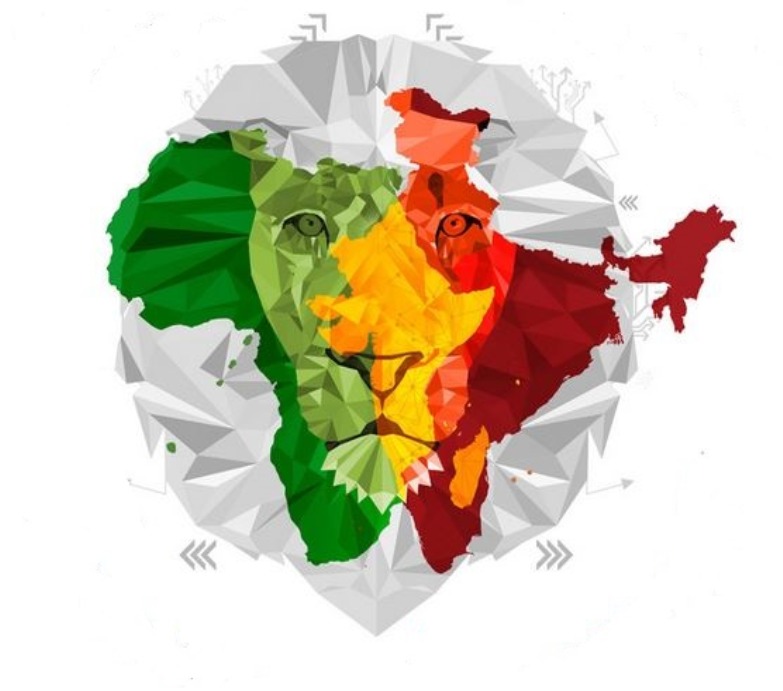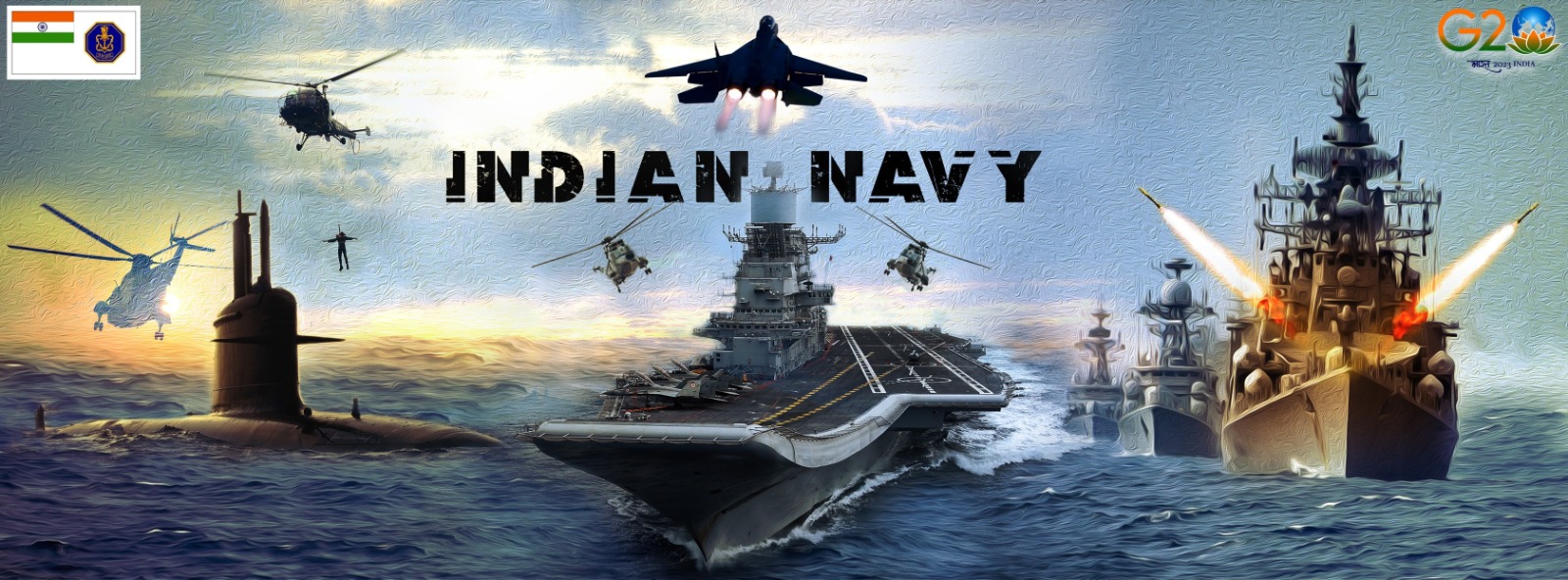By: Amb. Gurjit Singh
As we mark Africa Day on 25 May, we are reminded of the formation of the Organization of African Unity (OAU) on this day in 1963, which transformed into the African Union in July 2002. Both organizations have faced challenges to peace and security, often relying on external support.
The AU Peace and Security architecture is built on five pillars but lacks a clear maritime dimension. Most of the AU’s work focuses on internal rather than maritime threats, leading to a lack of capacity to address issues from the seas.
The rise of piracy in the first decade of the 21st century around the Gulf of Aden, particularly around Somalia, led to multiple flotillas protecting shipping.
This problem highlighted the failure of the peace and security architecture to maintain coherence in Somalia despite significant efforts. While piracy was eventually controlled, the Indo-Pacific (IP) has now become the primary framework for security architecture in the region.
Countries like India, Japan, and France have extended their Indo-Pacific policies to the shores of East and Southern Africa (ESA). India, in particular, has shown increased intent in this area.
Japan has a base in Djibouti, while France has a more robust presence with bases in Djibouti and its southern Indian Ocean islands. India has arrangements with both France and Japan to use their bases and has a consistent presence in the region.
Traditionally, India’s naval deployment was linked to Mauritius and Seychelles, expanding to Madagascar. Now, India has a more robust relationship with countries on the coast, with Indian ships often visiting their ports on goodwill missions.
During the pandemic, Indian ships provided food and medical assistance to coastal countries up to the Red Sea. India’s naval presence and emphasis on humanitarian assistance and disaster relief have been invaluable in the region.
Besides including ESA in its Indo-Pacific thought process, India has acted regionally and bilaterally to prioritize Africa, as PM Modi promised in his 2018 speech to the Uganda parliament.
Given India’s importance to the Indo-Pacific (IP), our Africa policy began adjusting to the IP policy. Regionally, India worked through the Indian Ocean Rim Association (IORA) and, in October 2023, was instrumental as its vice-chairman in articulating an IP outlook.
The common objective, as stated by EAM Dr. Jaishankar after the IORA Council of Ministers meeting in Colombo in October 2023, is to promote regional prosperity and keep the Indian Ocean free, open, and inclusive, harmonized with the UN Convention on the Law of the Sea. India’s commitment to the well-being and progress of Indian Ocean nations as a first responder and net security provider is based on its neighborhood-first policy and the SAGAR outlook.
These policies have meshed into a broader vision of an IP built on a rule-based international order, sustainable and transparent infrastructure, freedom of navigation and overflight, and respect for sovereignty and territorial integrity.
The Indian Ocean is a significant waterway for economic and strategic exchanges, requiring tranquillity and common action from IORA member states. The 23 countries, including almost all African coastal nations, now have a regionally accepted framework that builds upon SAGAR as India’s regional view, enmeshed in its IP policy.
India views IORA as a platform for promoting sustainable development, economic growth, and prosperity, as well as regional stability. These themes were also discussed with Africa at the 2015 summit. Recently, maritime safety, security, and the blue economy have gained emphasis. Nontraditional threats like piracy, drug running, illegal migration, and marine pollution have emerged, and India’s engagement with regional countries has intensified, focusing on maritime cooperation.
India’s interactions with strategically important African countries have increased. The PM met with Ethiopian and South African leaders at the 2023 BRICS summit. EAM visited Rwanda and Uganda for the Commonwealth and NAM summits. The presidents of Tanzania and Kenya visited India, and Mozambique’s President attended the Vibrant Gujarat Summit.
India has intensified defense cooperation with Mozambique through training and a willingness to provide equipment alongside large investments in Mozambique’s energy sector. Strengthening Mozambique’s defense forces should help address the insurgency in Cabo Delgado. Joint statements on maritime security and cooperation with Tanzania and Kenya set the framework for expanding bilateral cooperation. Ethiopia seeks similar cooperation with India.
India has opened 18 new embassies in Africa, including in Eritrea, Djibouti, and Somalia, saturating its presence in this region. New positions for defense attachés in Ethiopia, Djibouti, Tanzania, Mozambique, and Rwanda have been sanctioned, adding to existing ones in South Africa and Kenya. This decision aims to enhance political and security engagement across the Indian Ocean.

India is ready to export more defense equipment to strengthen regional militaries, whose capacity and budgets are limited. Due to economic issues, defense spending in these littoral states has stagnated, keeping their militaries small and with limited influence.
This impacts their ability to provide their own security, and they often welcome foreign militaries for maritime issues. Mozambique sought assistance to curb the Cabo Delgado insurgency, with French-backed Rwandan troops enforcing order. In Somalia, support to maritime police saw them become political players, focusing on internal instability rather than coastal protection. Stronger domestic policies must match support for regional militaries to ensure clear hierarchy and control.
Western Africa suffers due to problems where foreign-assisted militaries become stronger, but domestic politics weaken due to poor governance and internal conflicts.
Literature on the Indo-Pacific and Africa often highlights the US-China rivalry, though it is less apparent in this region. The US, China, France, and Japan have bases in Djibouti, but US ships focus on the Red Sea and other regions. European navies, once active against Somali piracy, are less visible. The Indian Navy is the most visible, showing India’s priority for Africa in its SAGAR, IORA, and Indo-Pacific policies.

With new missions, more deployments, and a clear intent to provide military equipment, India’s next steps should augment maritime cooperation with Indian Ocean littoral states. Relations with Mauritius, Seychelles, and Madagascar are progressing well. South Africa, a BRICS member with India, aligns more with the China-Russia axis due to its worldview and faltering economy, limiting the relationship’s potential.
Relations with Mozambique, Tanzania, Kenya, Uganda, and Rwanda are steadily progressing. India’s growing interest in FDI promotion and supporting human resource development is evident.
Indian entrepreneurs in these countries are increasingly seeking local or international financing rather than Indian support. Supporting them with lower-cost local financing and rupee-based trade and credit lines would enhance their success. Growing FDI from India is crucial for regional development and better relations.
Significant milestones include opening the first IIT overseas in Zanzibar, Tanzania, a forensic science university in Uganda, and an Entrepreneurship Development Centre in Rwanda. These initiatives reflect new enthusiasm for specialized education, aiding young people in these countries. India’s strategic success is notable, with Africa’s young population needing such support.
India’s humanitarian efforts, including through the Navy, goodwill visits, food, vaccine, and medicine delivery during the pandemic, have left a lasting impression. These efforts should continue to maintain strong regional relationships.
These relationships can be augmented by rupee-denominated lines of credit to supply defense equipment to these littoral countries. Their interest is clear, and if hard currency payments can be avoided, they may make India a Partner of Choice. This will give India an edge over the high-cost loans and equipment that China, for instance, is providing to these countries.
- Gurjit Singh is a former Ambassador to Germany, Indonesia, Ethiopia, ASEAN, and the African Union Chair, CII Task Force on Trilateral Cooperation in Africa, Professor, IIT Indore.
- Follow EurAsian Times On Twitter (Now X)




